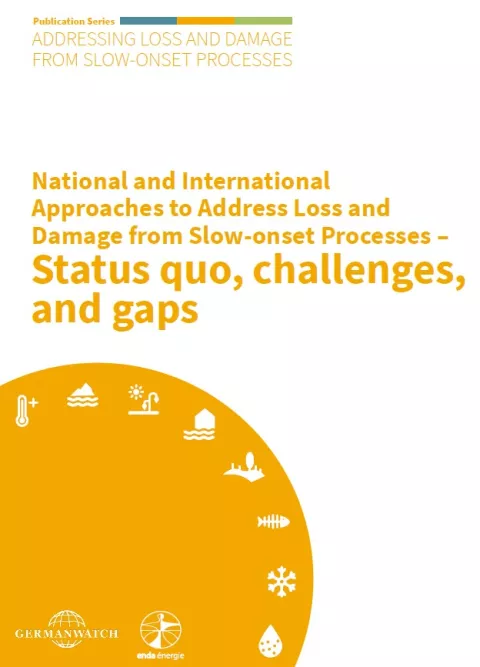
In addition to amplifying extreme weather events, climate change also causes or intensifies slow-onset processes such as sea-level rise, desertification, biodiversity loss or permafrost thaw. Both types of climate change impacts cause loss and damage, impede the enjoyment of human rights and can be drivers for human mobility. In contrast to extreme weather events, dealing with loss and damage caused by slow-onset processes in the context of climate change is still neglected – both at the national and international level.
The publication series "Addressing Loss and Damage from Slow-Onset Processes" responds to this challenge and aims to foster awareness of the urgency to act in this area and provide input for processes at the national and international levels. The aim is to find tangible and feasible solutions to address loss and damage from slow-onset processes.
This second part of the series analyses national and international approaches to address loss and damage from slow-onset processes with view to status quo, gaps and challenges.
An introduction to the topic and a detailed analysis of economic and non-economic damages and losses as a result of slow-onset processes can be found in part 1 of the publication series.
The publication series is prepared as part of the “Multi-Actor Partnership on Climate and Disaster Risk Financing in Context of the InsuResilience Global Partnership”.




